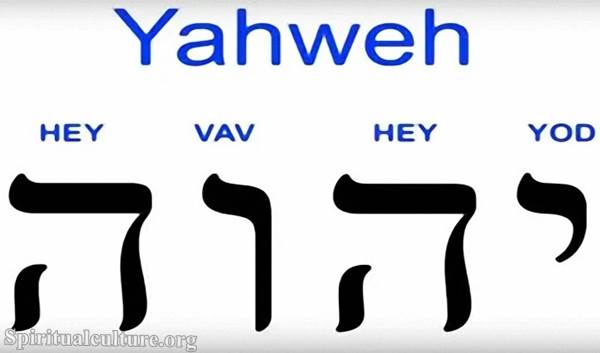What is Yahweh in Hebrew?
Yahweh is the personal name of the God of the Israelites in the Hebrew Bible. The name is used more than 6,800 times in the Old Testament and is considered the most important and sacred name of God in the Jewish tradition.
In the realm of religious studies, Yahweh is a name of profound significance. It is the personal name of God as revealed to Moses in the burning bush, as detailed in the book of Exodus in the Hebrew Bible. The name Yahweh, translated to English, is often represented as “I am who I am” or “I will be who I will be.” These interpretations suggest a God who is self-sufficient, self-existent, eternal, and unchanging.
In this context, the meaning of Yahweh is more than a mere name. It is a philosophical statement that encapsulates the omnipotent and omnipresent nature of God. It is a reminder of the divine transcendence that surpasses human understanding, an affirmation of the divine presence that underlies all existence.
Meaning of Yahweh in Hebrew
The exact meaning and etymology of the name Yahweh are not known, but it is thought to be derived from the Hebrew verb “to be” or “hayah,” which is the root of the name “YHWH,” often transliterated as “Yahweh.”
Yahweh is typically translated as “Lord” or “LORD” in English translations of the Bible, using capital letters to indicate the sacredness of the name. In Jewish tradition, the name Yahweh is considered too sacred to be spoken aloud and is typically referred to as “Adonai,” which means “Lord.”

In the Bible, Yahweh is described as the creator of the universe, the ruler of the world, and the God of the Israelites. He is a powerful, just, and merciful God who is deeply involved in the lives of his people. Yahweh is also associated with the revelation of his will through the prophets and the establishment of a covenant with the Israelites.
It is also worth mentioning that the Jewish tradition has long held that the true pronunciation of the Tetragrammaton (YHWH) has been lost and that the proper pronunciation should not be spoken.
In addition to being considered the personal name of God, Yahweh is also associated with various attributes and qualities in the Hebrew Bible. These include:
- Sovereignty: Yahweh is the supreme ruler of the universe, and his rule is absolute and unchallenged.
- Holiness: Yahweh is set apart from all other beings and is considered to be completely holy and pure.
- Justice: Yahweh is a just God who upholds righteousness and punishes evildoers.
- Mercy: Yahweh is also a compassionate and merciful God who forgives the sins of those who repent and seek his forgiveness.
- Faithfulness: Yahweh is a God who keeps his promises and is faithful to his covenant with the Israelites.
Yahweh is also closely associated with the history and identity of the Israelites. He is the God who delivered them from slavery in Egypt, and he is the God who led them to the Promised Land. Yahweh is also the God who spoke to the Israelites through the prophets, revealing his will and guidance to them.
In Jewish and Christian traditions, Yahweh is considered the one true God and is worshiped and revered as such. In Christianity, Jesus is believed to be incarnate of Yahweh, and the New Testament presents Jesus as the full revelation of God, who is the same yesterday, today, and forever.
It’s also important to mention that Yahweh is not the only name of God in the Hebrew Bible, but it is considered God’s most important and sacred name. It is associated with his most intimate and personal aspects.
